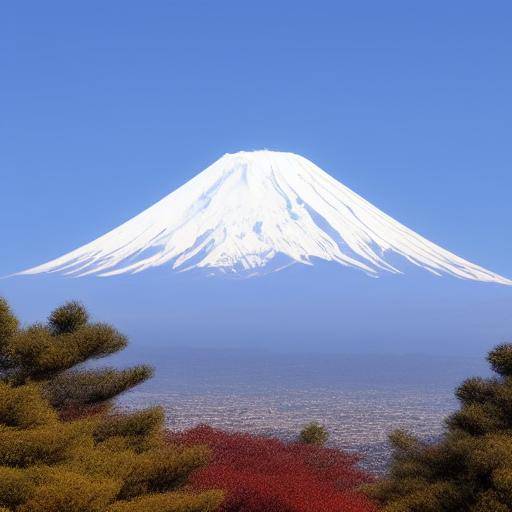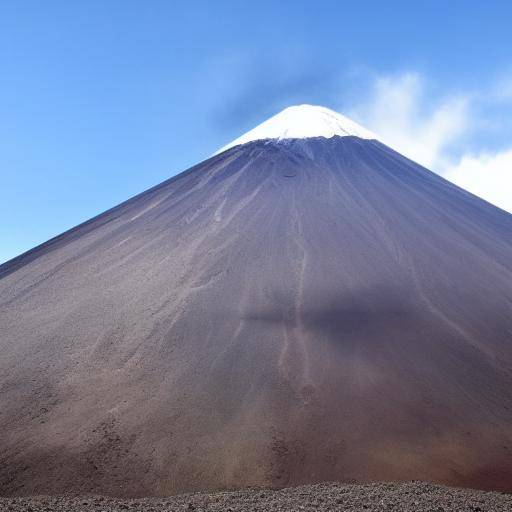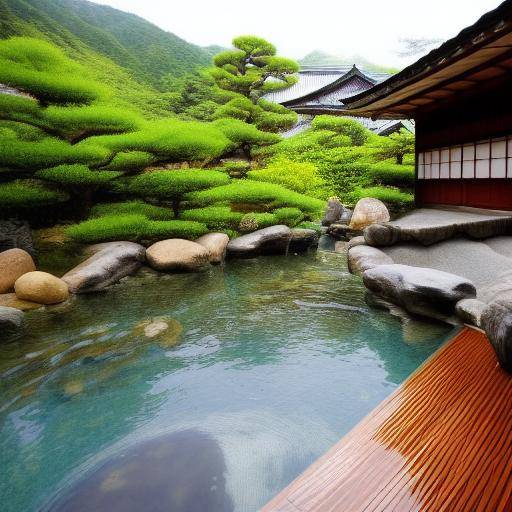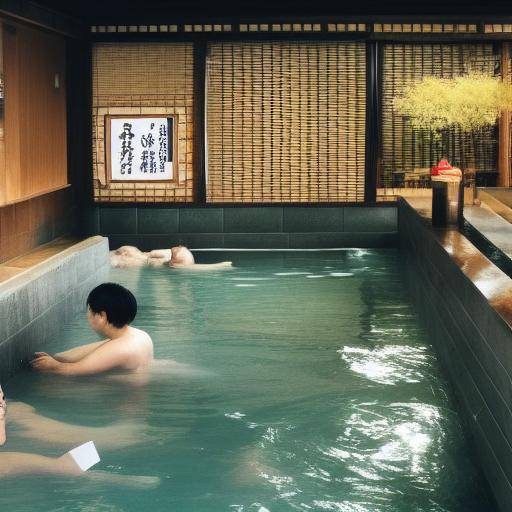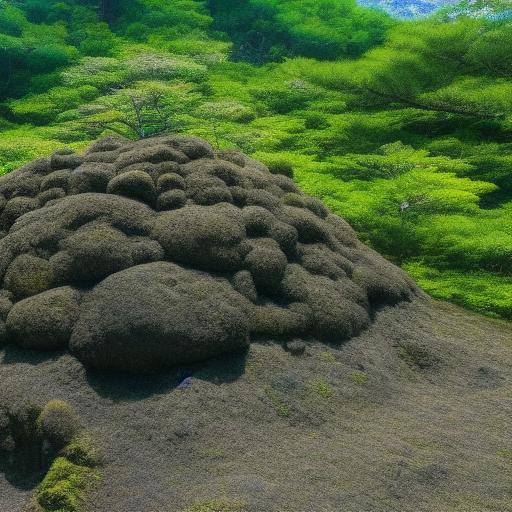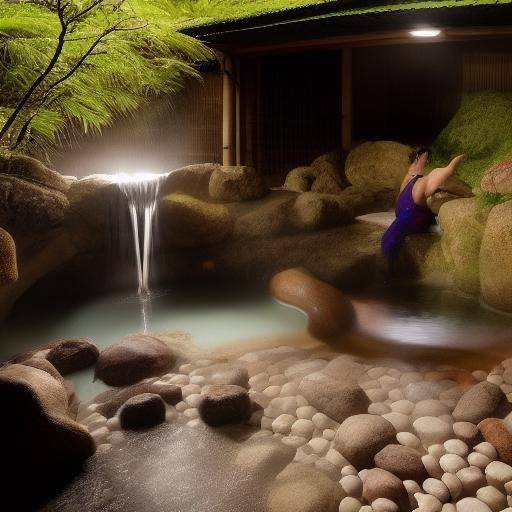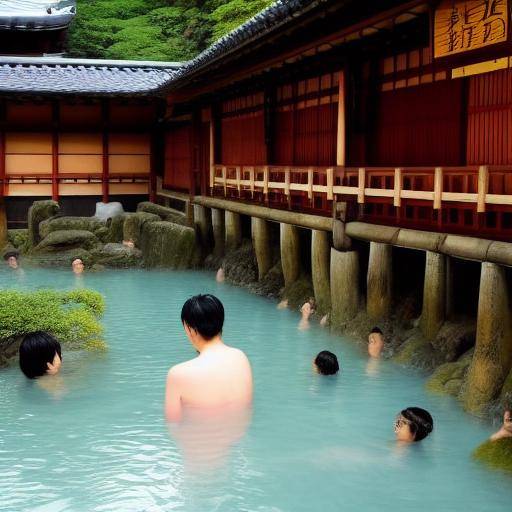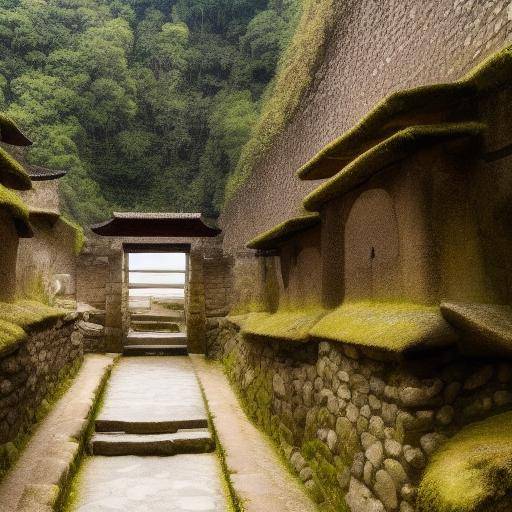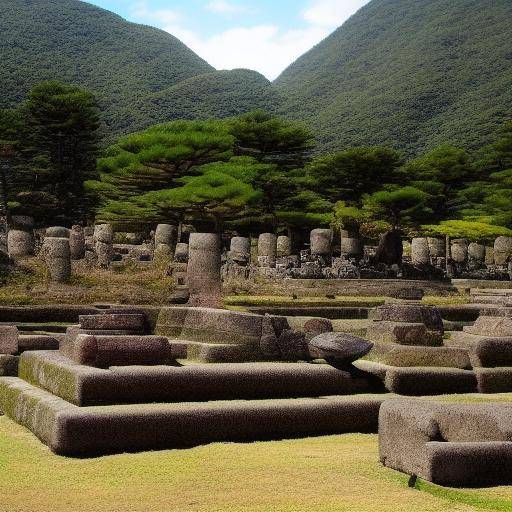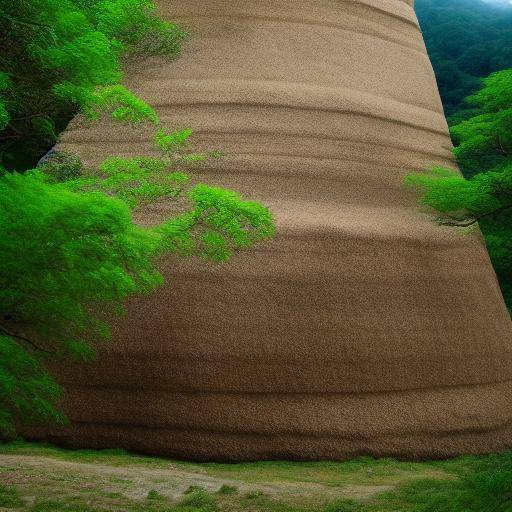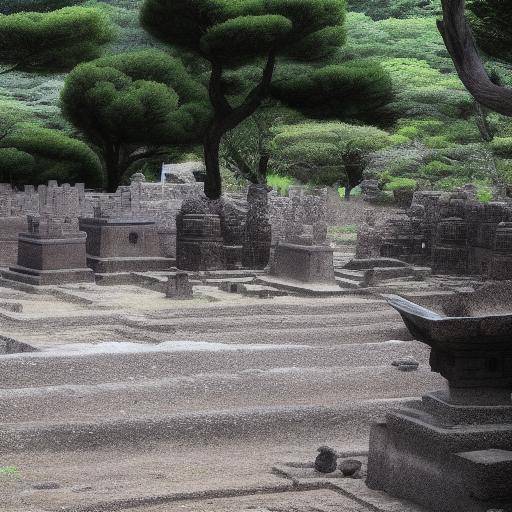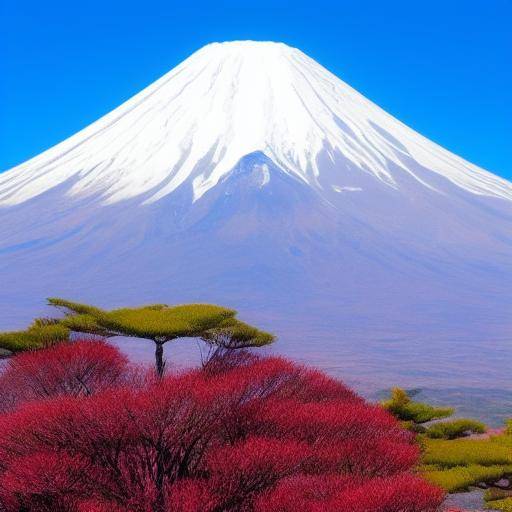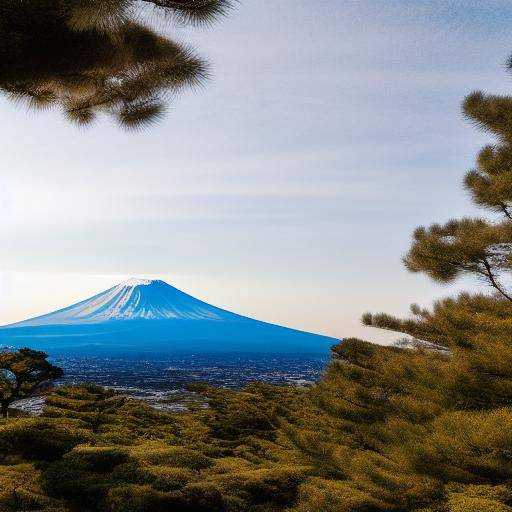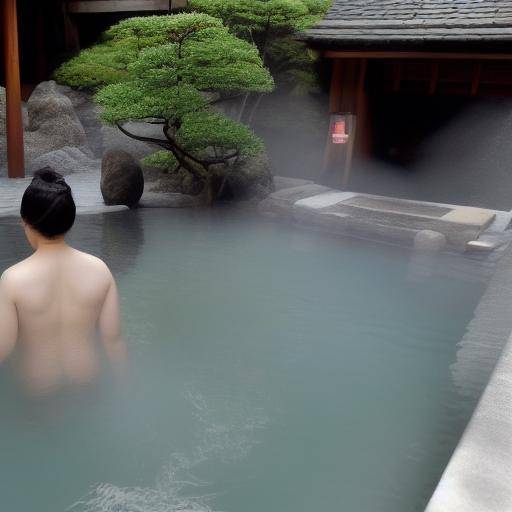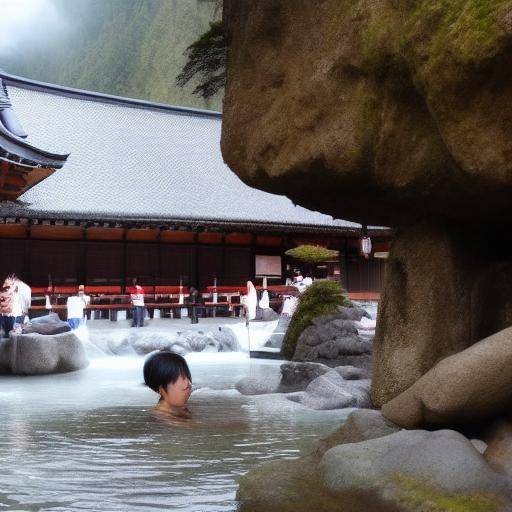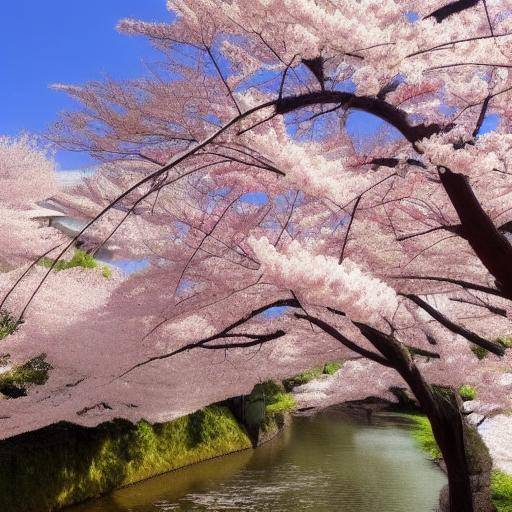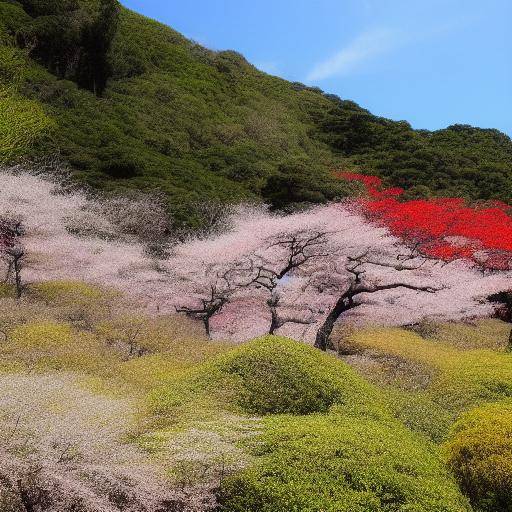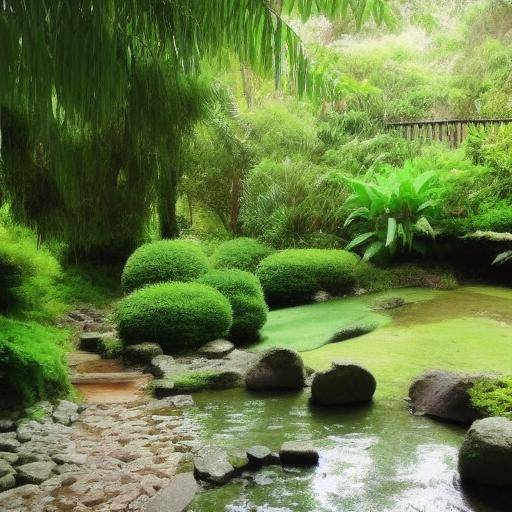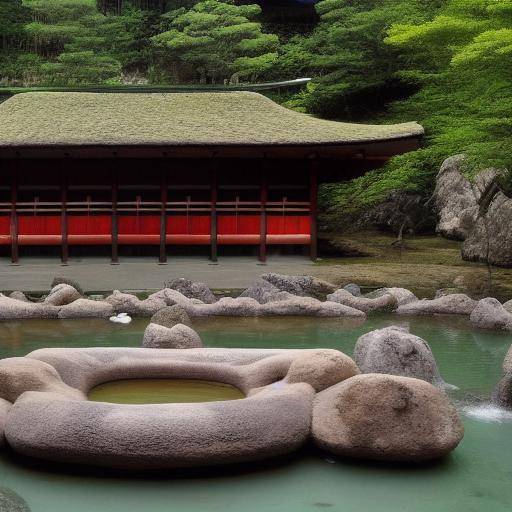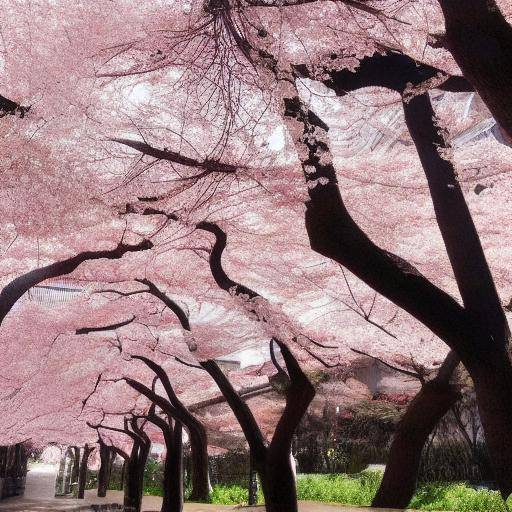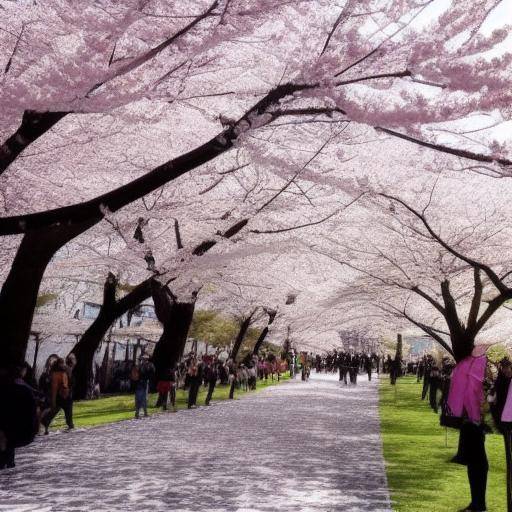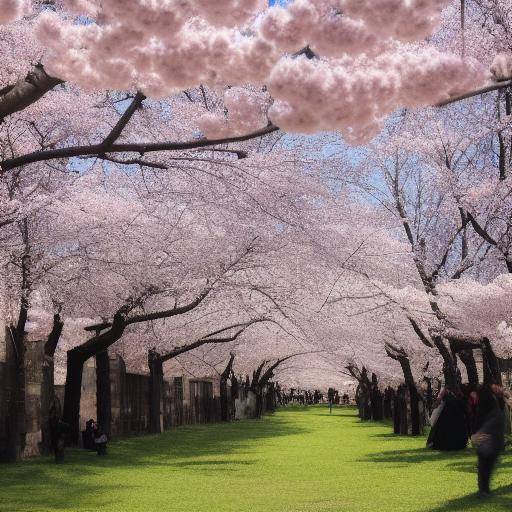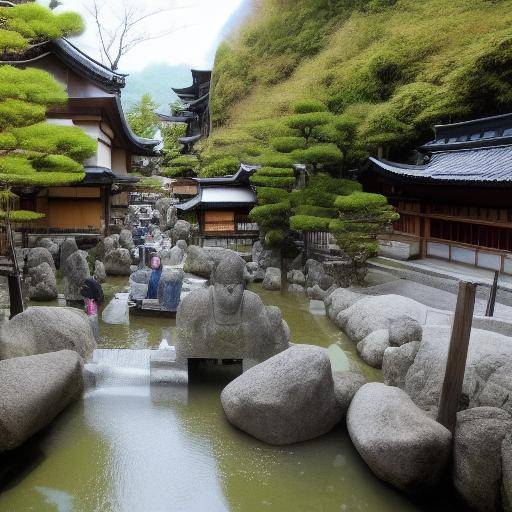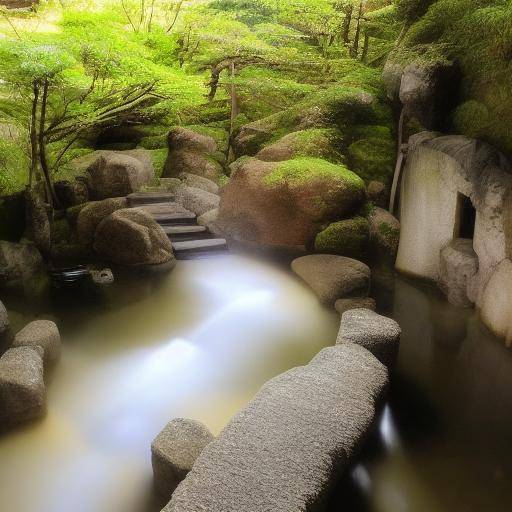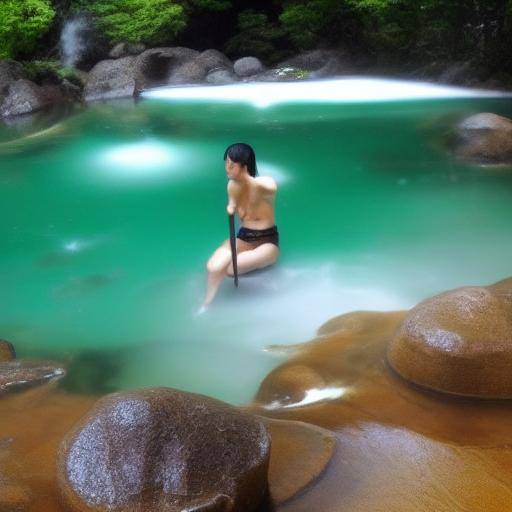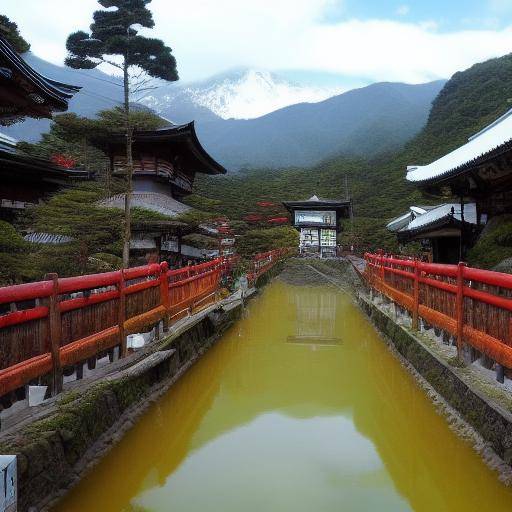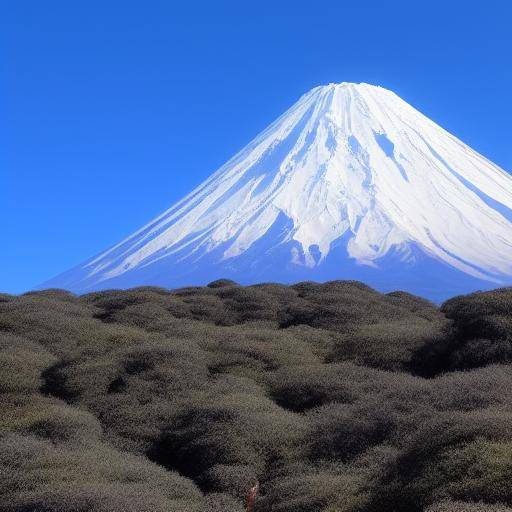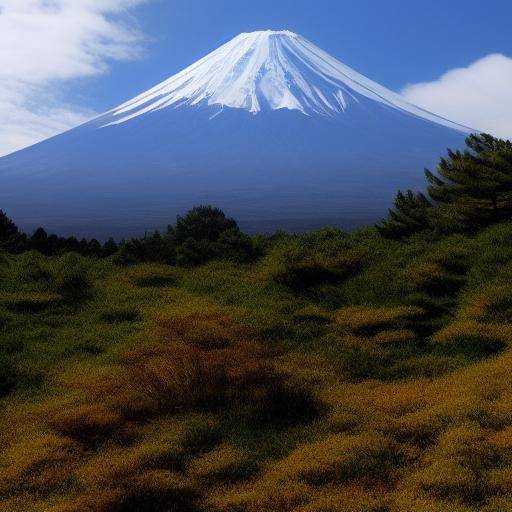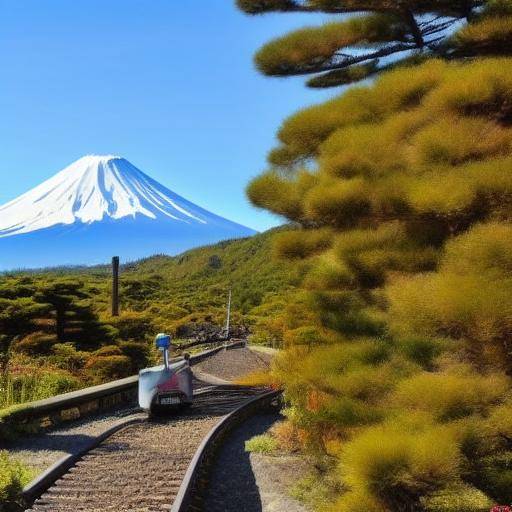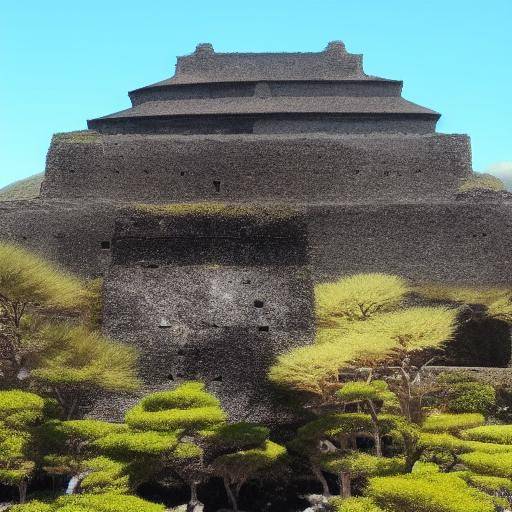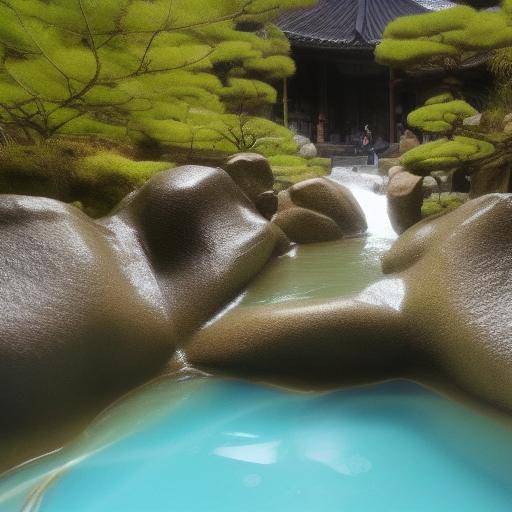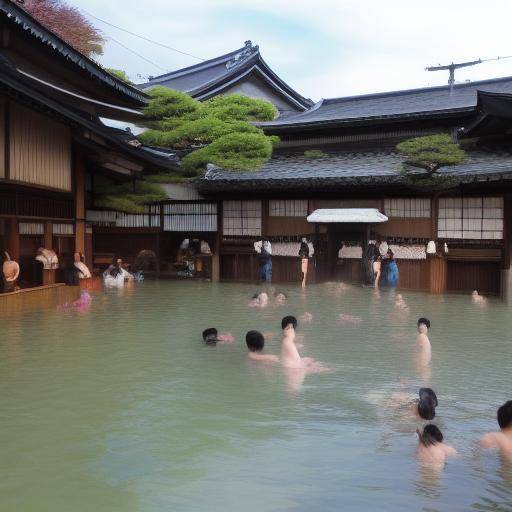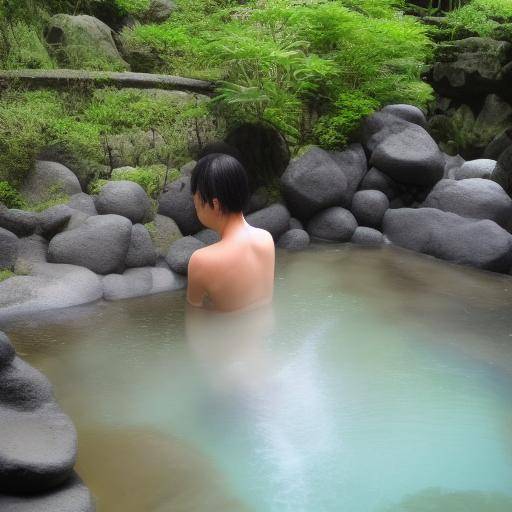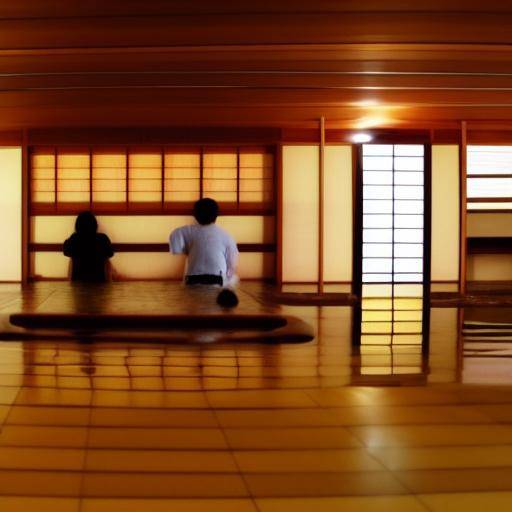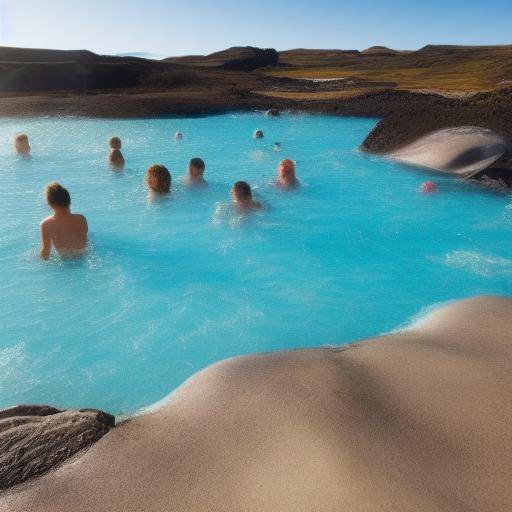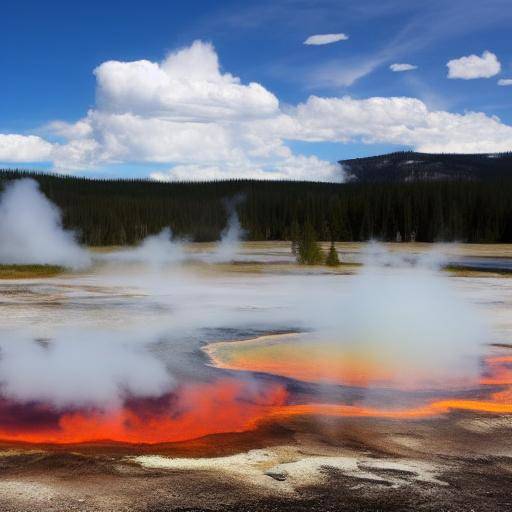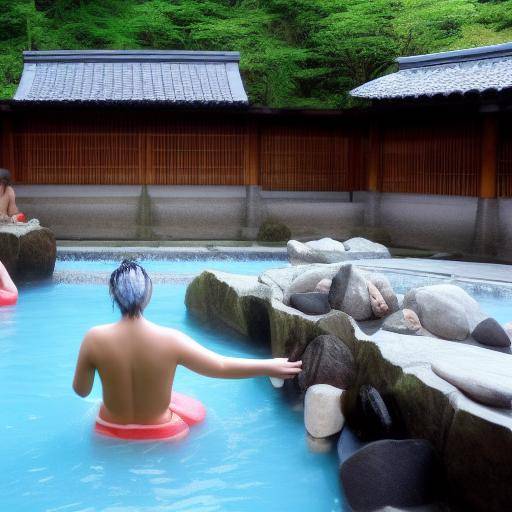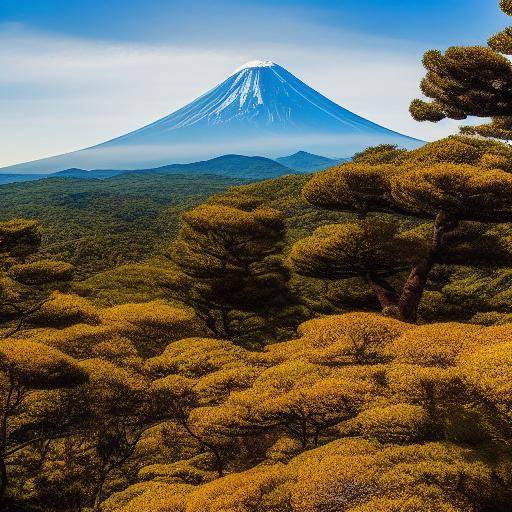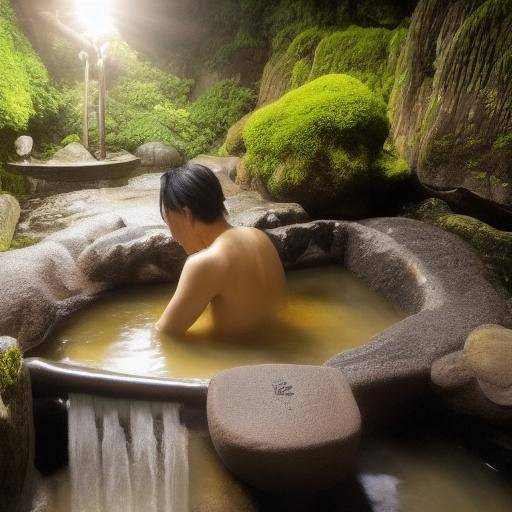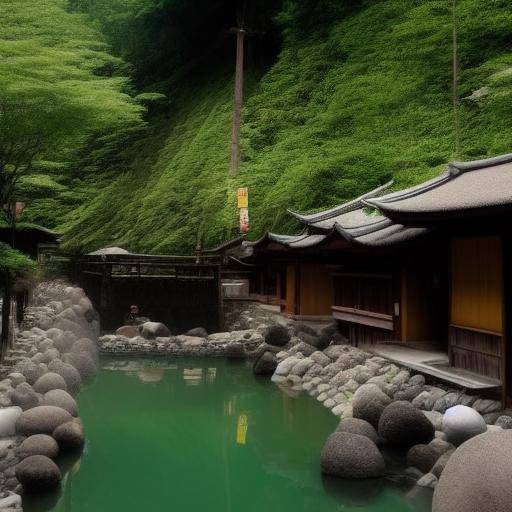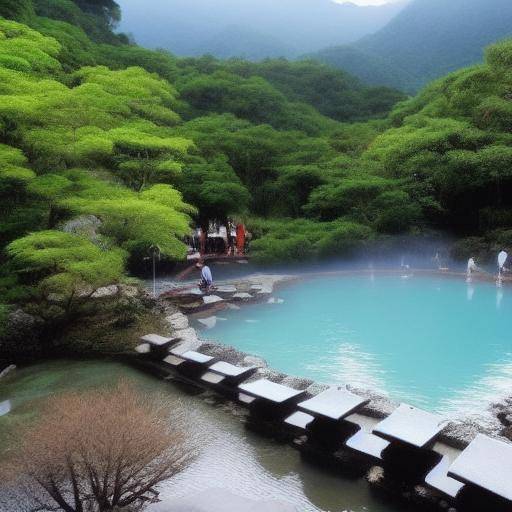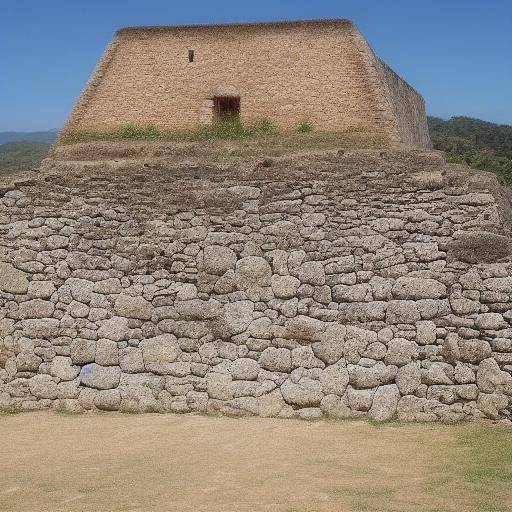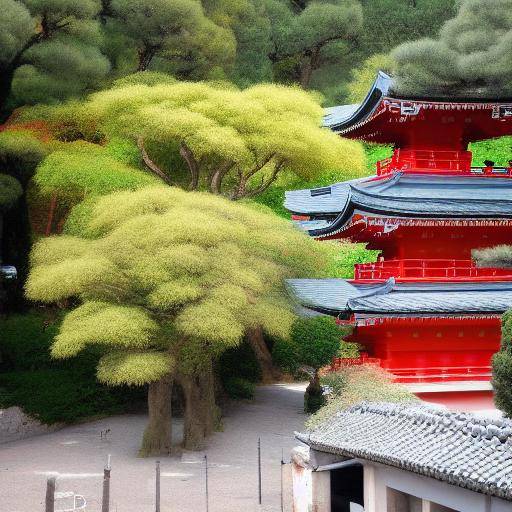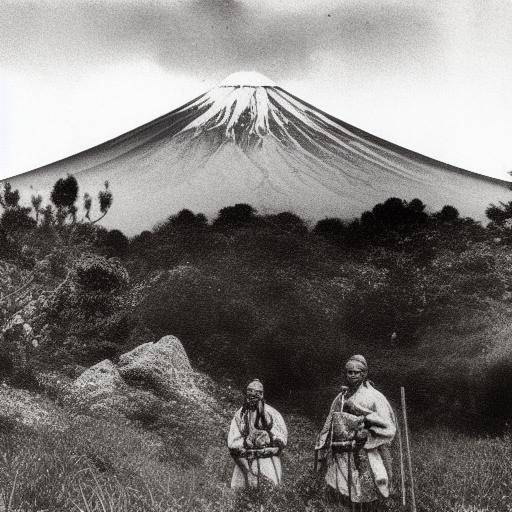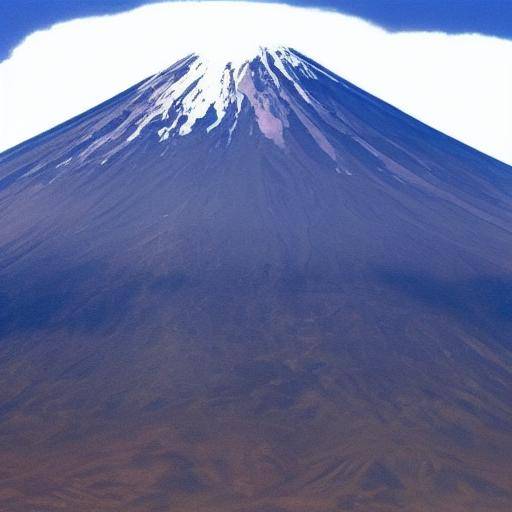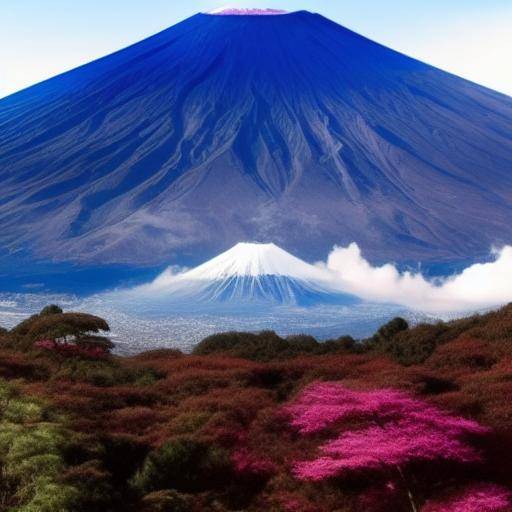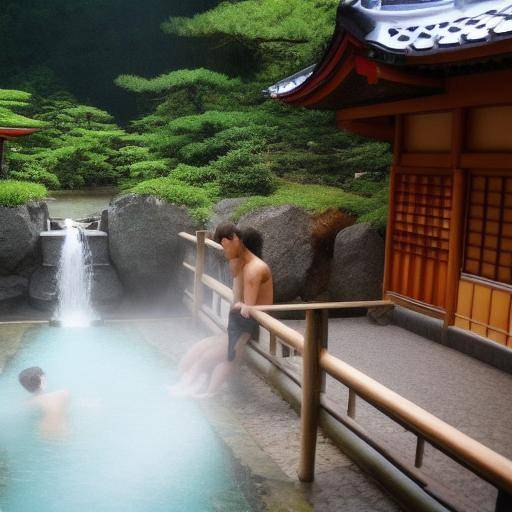
Introduction
Japan is a fascinating country full of rich history, unique traditions and a culture deeply rooted in the connection with nature. One of the country's most emblematic traditions is the "onsen", natural thermal baths that not only offer health benefits, but also play a vital role in Japan's social and cultural life. In this article, we will explore in depth the tradition of onsen in Japan, its cultural importance, its history, health benefits, and its impact on Japanese society. In addition, we will provide practical advice and a vision of the future of this ancient practice.
History and Background
The onsen, thermal baths in Japan, have a rich history dating back centuries. The first written mention of thermal baths in Japan dates back to the eighth century, during the Nara era. Since then, the onsen have been venerated not only by their therapeutic benefits, but also by their spiritual and social significance. During the Edo period, onsen culture experienced an unprecedented boom, becoming a pillar of everyday life and a tourist attraction.
The onsen have also played an important role in the development of the traditional Japanese architecture, with the creation of ryokans and other facilities around the thermal baths. Today, the onsen are not only a place to relax and heal the body, but they are also appreciated as natural escapes that offer peace and tranquility away from the hustle of modern life.
Detailed Analysis
Onsen not only provide pleasure and comfort to visitors, but also have proven therapeutic benefits. The thermal waters rich in minerals present in the onsen are known to relieve stress, improve circulation and relieve muscle and joint ailments. In addition, it has been shown that these thermal baths have healing properties for skin conditions and help in the process of detoxifying the body.
Onsen also influence Japanese culture in profound ways. They are places where people meet and share moments of tranquility, allowing a deeper connection with nature and others. This unique experience has shaped the way the Japanese perceive relaxation and health, fostering a balancing mentality between the body and the mind.
Full review
The waves in Japan have evolved over time, adapting to the demands of modern society without losing its original essence. At present, there are urban onsen that meet the needs of people living in urban environments, as well as onsen of wild thermal waters, which allow visitors to immerse themselves in nature in its purest form.
As tourism in Japan continues to grow, the onsen have become one of the main attractions for foreign visitors. This popularity has led to greater diversification of the services offered in the onsen, including modern amenities such as spas, saunas and beauty treatments.
Comparative analysis
While the onsen share similarities with other types of thermal waters around the world, their cultural importance and Japanese tradition distinguishes them markedly. The onsen are not only considered a refuge to relax, but are also venerated as sacred places where the body and the spirit find balance.
Compared to the thermal waters of other countries, onsen in Japan have a strong connection with history and nature, and its development has been closely linked to the sense of community and collective well-being.
Practical Tips and Accessible Tips
If you're planning to visit an onsen in Japan, it's important to follow certain local rules of label and customs to fully enjoy this experience. Before diving into the hot springs, make sure you wash and rinse completely to maintain the purity of the waters. It also respects the silence and serenity that is lived in these spaces, and recalls that entry with clothing is usually forbidden. Also, do not forget to know the meaning of the different yukatas colors used in these establishments, as their choice may vary depending on the civil status or origin of the visitors.
Industry Perspectives and Expert Reviews
Experts on Japanese culture and tourism have highlighted the importance of preserving the authenticity and traditional essence of the onsen in Japan. Although modernization and globalization have impacted the way services are offered in the onsen, it is crucial to maintain respect for customs and the connection with nature that defines these thermal baths.
In an era in which well-being and mental health play a central role in society, the waves in Japan represent a timeless shelter where people can disconnect from daily noise and reconnect with their inner being. This vision offers a unique perspective that highlights the importance of the onsen beyond their therapeutic function.
Case Studies and Real Life Applications
An emblematic example of the social and cultural importance of the onsen in Japan is manifested in the concept of "naka yoshi" (the fortress through sharing heat). This notion reflects the idea that people can strengthen their ties by sharing a bath in an onsen, which symbolizes the strengthening of personal relationships and the creation of an environment of trust and camaraderie. This concept clearly exemplifies how onsen are not only spaces to improve physical health, but also to strengthen interpersonal relationships and create a sense of community.
Future Trends and Predictions
As tourism in Japan continues to flourish and gain popularity globally, the onsen are expected to remain a major attraction for visitors. However, the sustainability and preservation of these natural resources has become a growing concern. The development of more ecological practices and the approach to preserving the authenticity of the onsen are therefore expected to be fundamental in the evolution of this tradition.
Conclusion
The onsen in Japan are much more than simple thermal baths: they represent a deep connection with nature, a beautiful manifestation of Japanese culture, and a shelter for healing and well-being. Through this exploration, we have discovered the rich history, the therapeutic benefits, and the social impact of the onsen in Japan. As the world continues to change, it is crucial to appreciate and protect these ancestral traditions that provide a unique vision of the relationship between human beings and nature.
Frequently asked questions
What is the difference between an onsen and a regular hot springs?
The waves in Japan are characterized not only by their thermal waters, but also by their deep cultural and social importance. The label, the connection with nature and traditional practices found in the onsen are distinctive and go beyond the mere experience of bathing in thermal waters.
What is the protocol to follow when visiting an onsen in Japan?
Before diving into the thermal waters, you must wash and rinse completely to maintain the purity of the waters. In addition, it is essential to respect the silence and serenity that reigns in these spaces and to follow the rules of clothing, since it is generally forbidden to enter with clothing.
What is the popularity of the onsen among foreign tourists?
The popularity of the onsen among foreign tourists is due to the growing trend in the search for authentic experiences and in contact with nature. In addition, the therapeutic benefits of the thermal waters and the cultural tradition surrounding the onsen have attracted the attention of people around the world.
What are the health benefits of onsen?
Onsen offer therapeutic health benefits due to the healing properties of mineral-rich thermal waters. These benefits may include stress relief, improved circulation, relieved muscle and joint ailments, as well as beneficial properties for the skin and the process of detoxification of the body.
What is the best time to visit an onsen in Japan?
The best time to visit an onsen in Japan varies depending on the region and personal preferences in terms of climate. However, many travelers enjoy the onsen experience during the winter, as plunging into thermal waters while snow is considered a unique and rewarding experience.
How does a ryokan differ with onsen from a regular hotel in Japan?
A ryokan with onsen is a traditional Japanese accommodation that offers natural thermal baths to its guests, along with other traditional features such as tatamis and kaiseki (Japanese traditional food). In contrast, regular hotels, although they can offer modern amenities, rarely have natural onsen within their facilities.
What is the cultural significance of the practice of visiting an onsen in Japanese society?
The visit to an onsen is rooted in Japanese culture, representing a pause of daily life to focus on well-being and the connection with nature. It is an experience that promotes relaxation, introspection and strengthening of interpersonal ties, incarnating a philosophy of balance and harmony with the natural environment.
With this complete guide on the onsen in Japan, you will be prepared to immerse yourself in the rich tradition of the thermal baths of this fascinating country, and enjoy a unique experience that encompasses the connection with nature, health and well-being, and the rich Japanese culture. May your trip to Japan be full of relaxation, discovery and renewal!

